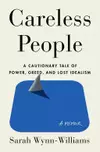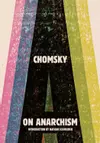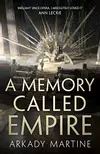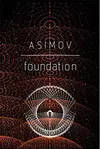Tom

The setup of Hill House as an antagonistic force is so compelling that the events end up feeling restrained and slightly underwhelming.
I love the idea of a house that has been built (or has morphed) to be disorientating. Lulling it's inhabitants into a literal false sense of security. I suspect that The Devil in the White City will make for a good companion piece in this regard.
The setup of Hill House as an antagonistic force is so compelling that the events end up feeling restrained and slightly underwhelming.
I love the idea of a house that has been built (or has morphed) to be disorientating. Lulling it's inhabitants into a literal false sense of security. I suspect that The Devil in the White City will make for a good companion piece in this regard.

Does a good job of covering the various reasons why the current approach to drugs is failing. None of it feels particularly surprising almost 10 years later but it's worth a refresher on why these policies fail on economic as well as moral grounds.
What would have elevated this analysis for me would be to further probe into the way in which the War on Drugs is driven by political interests outside of just protecting society from dangerous drugs. It's a cruel policy and the cruelty is partly the point here as it's useful to have a militarised border that separates more impoverished nations (amongst other benefits). A sensible book with sensible suggestions but nothing more than that.
Does a good job of covering the various reasons why the current approach to drugs is failing. None of it feels particularly surprising almost 10 years later but it's worth a refresher on why these policies fail on economic as well as moral grounds.
What would have elevated this analysis for me would be to further probe into the way in which the War on Drugs is driven by political interests outside of just protecting society from dangerous drugs. It's a cruel policy and the cruelty is partly the point here as it's useful to have a militarised border that separates more impoverished nations (amongst other benefits). A sensible book with sensible suggestions but nothing more than that.

The characters are just as well drawn as the previous two but the plot is significantly weaker.
I missed the investigative aspect and having an outcome to root for. There are too many despicable people and not enough "good guys" with agency. The writing has a momentum that had me engaged throughout but I left feeling like there was an opportunity lost and that the strengths of the first two books were diminished in the pursuit of a tidy ending.
The characters are just as well drawn as the previous two but the plot is significantly weaker.
I missed the investigative aspect and having an outcome to root for. There are too many despicable people and not enough "good guys" with agency. The writing has a momentum that had me engaged throughout but I left feeling like there was an opportunity lost and that the strengths of the first two books were diminished in the pursuit of a tidy ending.

Shocking but not surprising. Also serves as a cautionary tale about how difficult it is to 'fix the problem from the inside' and how you often end up simply perpetuating the issues that you came in to solve.
Some takeaways:
- Being attacked by a shark sounds almost as bad as having negligent parents
- Mark's staff let him win at Catan and he's too self-important to notice
- The answer to balancing parenting and work at that level is to let other people manage the children for you
- Sheryl is a horrible horrible person, espousing feminist ideals while doing the very opposite
- Joel is even worse, I can't believe these kind of men continue to get away with such obvious sexual harassment
- These people have blood on their hands
Shocking but not surprising. Also serves as a cautionary tale about how difficult it is to 'fix the problem from the inside' and how you often end up simply perpetuating the issues that you came in to solve.
Some takeaways:
- Being attacked by a shark sounds almost as bad as having negligent parents
- Mark's staff let him win at Catan and he's too self-important to notice
- The answer to balancing parenting and work at that level is to let other people manage the children for you
- Sheryl is a horrible horrible person, espousing feminist ideals while doing the very opposite
- Joel is even worse, I can't believe these kind of men continue to get away with such obvious sexual harassment
- These people have blood on their hands

Shocking but not surprising. Also serves as a cautionary tale about how difficult it is to 'fix the problem from the inside' and how you often end up simply perpetuating the issues that you came in to solve.
Some takeaways:
- Being attacked by a shark sounds almost as bad as having negligent parents
- Mark's staff let him win at Catan and he's too self-important to notice
- The answer to balancing parenting and work at that level is to let other people manage the children for you
- Sheryl is a horrible horrible person, espousing feminist ideals while doing the very opposite
- Joel is even worse, I can't believe these kind of men continue to get away with such obvious sexual harassment
- These people have blood on their hands
Shocking but not surprising. Also serves as a cautionary tale about how difficult it is to 'fix the problem from the inside' and how you often end up simply perpetuating the issues that you came in to solve.
Some takeaways:
- Being attacked by a shark sounds almost as bad as having negligent parents
- Mark's staff let him win at Catan and he's too self-important to notice
- The answer to balancing parenting and work at that level is to let other people manage the children for you
- Sheryl is a horrible horrible person, espousing feminist ideals while doing the very opposite
- Joel is even worse, I can't believe these kind of men continue to get away with such obvious sexual harassment
- These people have blood on their hands

A useful collection of Chomsky's thoughts on anarchism. Some takeaways:
- Anarchism helps solve the 'animal' problems but not necessarily the 'human' problems
- All anarchists are socialist but not all socialists are anarchist
- It's important to have a desired political system in mind but not all actions must contribute to bringing this about in the short term
- It is the responsibility of power to justify itself
A useful collection of Chomsky's thoughts on anarchism. Some takeaways:
- Anarchism helps solve the 'animal' problems but not necessarily the 'human' problems
- All anarchists are socialist but not all socialists are anarchist
- It's important to have a desired political system in mind but not all actions must contribute to bringing this about in the short term
- It is the responsibility of power to justify itself

I don't envy writers that take on complex investigations like this. By design, the financial machinations are obtuse and confusing, deliberately concocted to bewilder even the most experienced outsider looking in. Despite the inherent complexity, I think the author could have done a better job explaining the core aspects of this case study.
That aside, the key points I took from this book were:
1. Private equity moved assets between entities in an attempt to defraud creditors
2. Private equity owners used the size of the company during the bankruptcy to avoid personal liability for aforementioned fraud (just like Perdue)
I don't envy writers that take on complex investigations like this. By design, the financial machinations are obtuse and confusing, deliberately concocted to bewilder even the most experienced outsider looking in. Despite the inherent complexity, I think the author could have done a better job explaining the core aspects of this case study.
That aside, the key points I took from this book were:
1. Private equity moved assets between entities in an attempt to defraud creditors
2. Private equity owners used the size of the company during the bankruptcy to avoid personal liability for aforementioned fraud (just like Perdue)














